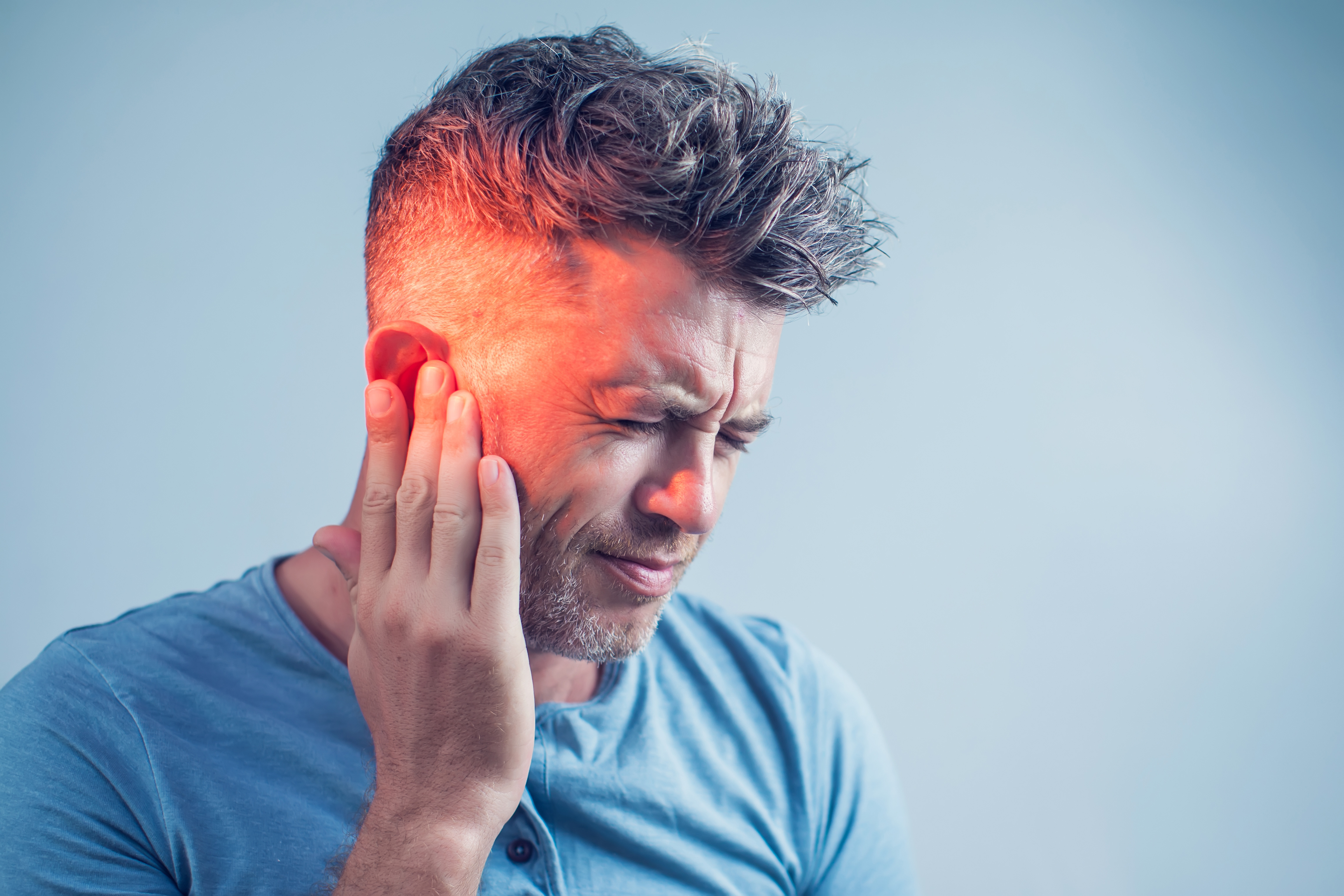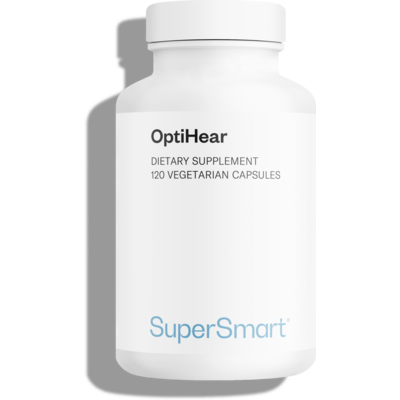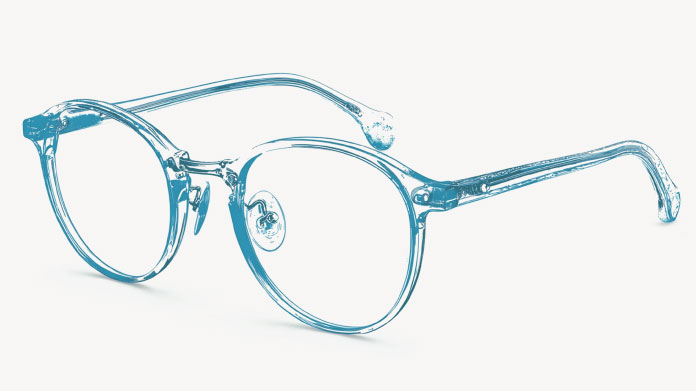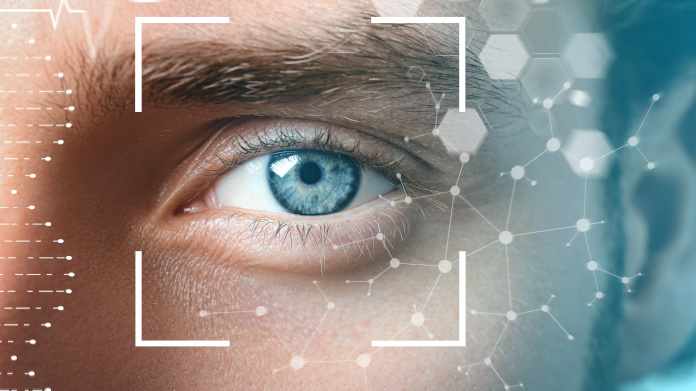Ginkgo biloba for tinnitus: does it work?
While no drugs exist that can successfully treat this non-serious but troublesome hearing problem, some studies suggest that ginkgo biloba is effective against tinnitus. Are they right?

Tinnitus: a non-serious hearing disorder
Tinnitus is a non-serious hearing disorder which affects 10%-15% of the world’s population, more commonly men. (1-2).
Tinnitus sufferers experience whistling, buzzing, squeaking, hissing, or some other intrusive noise, but one not caused by an external sound. This is known as subjective tinnitus.
There is another, much rarer, form called objective tinnitus, in which sufferers perceive the sound of blood flowing in arteries close to the ears.
Tinnitus is thus caused by abnormal neuronal activity in the auditory cortex. It is often compared to the sensation of ‘phantom limbs’ felt by amputees.
This ‘phantom sound’ is caused by a disturbance of the auditory pathways: blockage by earwax, acoustic trauma (from prolonged exposure to loud noise), age-related hearing loss, migraine, poor circulation, an inner ear problem, certain medications or Ménière’s disease.
There is currently no effective treatment for tinnitus where the benefits outweigh the side-effects.
Ginkgo biloba – an aid to hearing health
While Ginkgo biloba is today recognized as being good for cognitive function, especially in older people, it also appears to offer benefits for hearing health.
In fact Ginkgo biloba extract contains a high level of polyphenols, numerous antioxidant flavonoids (derivatives of catechins, procyanidins, etc.) as well as terpene lactones (ginkgolides A, B and C; bilobalides) with anticoagulant properties (3).
So together, the active ingredients in Ginkgo biloba thin the blood, protect blood vessel walls and increase venous tone (venotonic effect). As a result, Ginkgo biloba extract supports healthy microcirculation, associated with brain performance and reactivity, as well as hearing and visual health (4-5), by ensuring a good blood supply to these delicate organs.
The benefits of Ginkgo for tinnitus
Traditionally used for treating tinnitus, Ginkgo biloba has been the subject of numerous studies aimed at confirming its efficacy in addressing this hearing disorder.
Ginkgo biloba, tinnitus, the inner ear and microcirculation
While we don’t yet fully understand Ginkgo biloba’s mechanisms of action against tinnitus, its efficacy is likely to be due to the plant’s beneficial effects on blood microcirculation.
Its high content of flavonoids, polyphenols and in particular, terpene lactones, is thought to promote blood supply to the inner ear and protect it from oxidative stress. This means less damage, particularly age-related damage to the inner ear, thus preserving the lifespan of its cells (6-7).
However, these benefits are still the subject of discussion among the scientific community: some meta-analyzes have concluded that there is insufficient evidence of Ginkgo biloba’s efficacy in treating tinnitus, while others suggest this leaf extract from the ‘tree of a thousand shields’ is indeed an effective treatment (8-9).
For its part, however, the World Health Organization recognizes as “clinically proven” the use of ginkgo leaf extracts for the “symptomatic treatment of mild to moderate brain impairment associated with senile dementia: memory loss, concentration problems, depression, dizziness, tinnitus or headaches with no known cause other than aging”.
Ginkgo biloba and tinnitus: dose
Studies demonstrating the benefits of Ginkgo biloba for tinnitus suggest a dose of 120mg-160mg a day of an extract standardized to 24% or 25% flavonglycosides and 6% terpene lactones (such the supplement Ginkgo Biloba) for at least 6 weeks.
It’s also worth noting that certain synergistic formulations contain not only Ginkgo biloba extract, but also vitamin B3, zinc, magnesium and antioxidants, for maximum protection of the inner ear against the effects of aging (these include OptiHear and Hear Loss Formula).
SuperSmart ADVICE
References
- BAGULEY, David, MCFERRAN, Don, et HALL, Deborah. Tinnitus. The Lancet, 2013, vol. 382, no 9904, p. 1600-1607.
- https://www.ameli.fr/loire/assure/sante/themes/acouphenes/definition-causes-consequences-acouphenes
- JUNG, F., MROWIETZ, C., KIESEWETTER, H., et al.Effect of Ginkgo biloba on fluidity of blood and peripheral microcirculation in volunteers. Arzneimittel-Forschung, 1990, vol. 40, no 5, p. 589-593.
- SI, Xia, YU, Zhiying, REN, Xiaolei, et al.Efficacy and safety of standardized Ginkgo biloba L. leaves extract as an adjuvant therapy for sudden sensorineural hearing loss: a systematic review and meta-analysis. Journal of Ethnopharmacology, 2022, vol. 282, p. 114587.
- EVANS, Jennifer R. et COCHRANE EYES AND VISION GROUP. Ginkgo biloba extract for age‐related macular degeneration. Cochrane Database of Systematic Reviews, 1996, vol. 2013, no
- ERNST, E. et STEVINSON, C. Ginkgo biloba for tinnitus: a review. Clinical Otolaryngology & Allied Sciences, 1999, vol. 24, no 3, p. 164-167.
- MAHMOUDIAN-SANI, Mohammad Reza, HASHEMZADEH-CHALESHTORI, Morteza, ASADI-SAMANI, Majid, et al.Ginkgo biloba in the treatment of tinnitus: An updated literature review. The international tinnitus journal, 2017, vol. 21, no 1, p. 58-62.
- HILTON, Malcolm P., ZIMMERMANN, Eleanor F., et HUNT, William T. Ginkgo biloba for tinnitus. Cochrane Database of Systematic Reviews, 2013, no 3.
- ERNST, E. et STEVINSON, C. Ginkgo biloba for tinnitus: a review. Clinical Otolaryngology & Allied Sciences, 1999, vol. 24, no 3, p. 164-167.
Keywords
2 Days
Order was shipped on time and packaged…Wonderful Jobs!
Order was shipped on time and packaged excellently.
DMHoge
8 Days
great products and prices
great products and prices
Marie
14 Days
Easy to navigate site
Easy to navigate site, had what I was searching for, good price. easy order-check out
James Tucker
20 Days
My skin is clearing up nicely!
Pretty good for my skin so far.
Christian
22 Days
The new packaging is excellent
The new packaging is excellent - finally! No more squashed boxes and torn envelopes.
GORAN
23 Days
Great Product
Great Product
Larry Garrett
27 Days
Quick shipping
Quick shipping; good price. No issues!
Mary McCarty
29 Days
Thr product is very good and is helping…
Thr product is very good and is helping me on my health. Then is always on time
LUGO Luz
31 Days
Buying was fine
Buying was fine. I had problems with the website not recognizing my login info, and had to call to get it fixed. Other than that, everything was good.
David S. Clark
32 Days
Your super maca and super ginseng are…phenomenal
Your super maca and super ginseng are phenomenal supplements that compliment each other when taking them together. Fantastic feeling of well-being and lots of mid day energy without the crash.
Keith Mason
34 Days
I have had amazing results with every…
I have had amazing results with every supplement I've purchased. I am extremely satisfied with this company
kirstin Torres
35 Days
Fine products
Fine products . They are on the leading edge of online supplements. The only issue -so far-is they sometime run out of subscription items.
Jason Argos
37 Days
The ordering process is very user…
The ordering process is very user friendly and the products always come in a timely manner.
CARTER Rhonda
38 Days
The price for Dr
The price for Dr. Pero's AC-11 is reasonable and in line with his views. (my former colleague). Keep it pure.
CAMPBELL Clayton
41 Days
Right on every time.
Right on every time.
Arthur Nicholas






